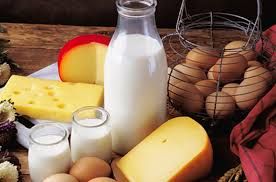 Tobacco-to-hotels conglomerate, ITC, has finalised a blueprint for its own brand of ‘white revolution’.
Tobacco-to-hotels conglomerate, ITC, has finalised a blueprint for its own brand of ‘white revolution’.
The company, which plans to become a pan-Indian dairy entity, is going to set up plants across six states -- Bihar (the first plant will be commissioned in Munger this year), Uttar Pradesh (possibly in Saharanpur), Punjab (in Kapurthala), Maharashtra, Andhra Pradesh and Telangana.
Of the dairy products the company plans to launch by the end of this year, the first is expected to be ghee, which could be followed by milk powder.
Though a spokesperson for ITC said specific details could not be given out for competitive reasons, he confirmed the states identified for the pan-Indian rollout of dairy operations.
According to sources, milk powder might initially be used in-house for the company’s foods business.
The company has been working on its dairy plan for a couple of years, albeit quietly.
Through its Integrated Rural Development programme, ITC has access to at least one million breedable cattle, from which it could source milk, across seven states.
It has set up 261 cattle development centres in states like Karnataka, Odisha and Madhya Pradesh, and managed to increase daily yields nearly four times to up to 11 litres by converting low-yield assets into a profitable livelihood opportunity.
The company has also leveraged its relationship with the farmers supplying it other commodities like wheat (sold under the Aashirvaad brand name).
Its linkages through ‘e-choupal’, the company’s initiative to connect with rural farmers via the internet for procurement of agricultural produce, would also come handy.
ITC’s mega move to dairy is part of its strategy to reduce its dependence on tobacco.
The company’s turnover from its non-fast-moving consumer goods (non-FMCG) business, of which foods is the biggest contributor, has already exceeded Rs 10,000 crore (Rs 100 billion).
The company’s entry into dairy business will make it the third big private-sector company in the space, after Nestle and Britannia Industries.
Nestle India, the largest private player, has dairy processing units in Moga (Punjab) Samalkha (Haryana) Ponda and Bicholim (Goa) Pantnagar (Uttarakhand) and Tahliwal (Himachal Pradesh). Nestle has also bought land to set up a plant in Sanand in Guajarat, the home turf of milk-cooperative Amul.
Britannia Industries, whose current reach is mostly limited to big cities, is also looking at ways to take its dairy business to the next stage, either through joint venture with an original equipment manufacturer to process dairy products better or with an international alliance.
ITC might also face competition from Danone, a relatively new player in India’s dairy space, that has launched its yoghurt range in select cities and also sells packaged milk.
At present, India produces a little more than 140 million tonnes of milk annually and has an increasing demand for dairy products, especially with a growing middle class. But the organised sector currently accounts for only a fourth of the total volume.
ITC is already working with 30,000 farms in Bihar’s Munger and creating awareness about best practices in animal husbandry.
It has set up integrated centres (Pashudhan Seva Kendra) for delivery of animal husbandry services.
To ensure fair remunerative prices, it is popularising transparent measurement practices by setting up e-testing equipment at milk centres.
The company is also working on financial inclusion of farmers through tie-ups with banks for cashless farmer payment systems.
The plants: In Bihar (first to be commissioned in Munger this year), Uttar Pradesh (possibly in Saharanpur), Punjab (in Kapurthala), Maharashtra, Andhra Pradesh and Telangana.
The first products: Likely to be ghee, followed by milk powder (latter to be initially used for captive requirement)
The competition: At present, Nestle and Britannia are the biggest private players in India’s dairy space, while Danone is a relatively new entrant
- Access to one million breedable cattle, from which milk could be sourced, across seven states (through ITC’s Integrated Rural Development programme)
- ITC has set up 261 cattle development centres in states like Karnataka, Odisha and Madhya Pradesh, and managed to increase daily yields nearly four times to up to 11 litres
- Its relationship with the farmers supplying it other commodities like wheat could be leveraged
- Linkages through ‘e-choupal’, ITC’s initiative to connect with rural farmers via the internet for procurement of agricultural produce
The preparation: THE MARKET
140 mn tonnes
Amount of milk produced in India annually
25%
The organised sector’s share in the total volume











